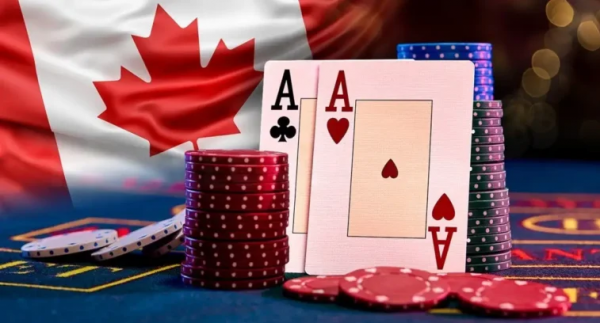“Poker is war. People pretend it is a game.” – Doyle Brunson.
As blasphemous as it may be, I would amend the great Doyle Brunson’s words here: poker is a psychological war. It may be funny to hear the game that millions of people use to relax, catch up with friends, or bond with family described as a psychological war, but it is. In fact, I can’t think of a better explanation for the game.
The psychology of poker has incredible depth. Not only can players use psychology to read their opponents and gain an edge, but it also must be used to look inward. To truly get in the mind of a poker player you need to have some basic understanding of human nature and poker.

Psychology of Poker: Reading Your Opponent
Experts have applied behavioral analysis to poker for years. The results of this analysis can be used to read your opponents and gain a significant edge over them at the table. In order to examine the psychology of poker, you need to look at human nature and how it manifests itself physically.
Mike Caro, author and poker player, is one of the most recognizable names when it comes to the physical psychology of poker. His book, Caro’s Book of Poker Tells, is a bestseller among live poker players looking to gain an edge on the competition. This is a top choice for poker psychology books. Caro delves deep into the vast amount of information a poker player’s body language conveys. You can use this to label a player in a general category or get a specific read on one hand.
General Categories
Body language can tell you a lot about a person. If you see someone sitting straight up with good posture, attentive and alert, that person is likely responsible and has a game plan. This player is more likely to be conservative with their chips and play stronger starting hands. This may open more opportunities to bluff, but be weary when they are putting chips in the middle. On the contrary, if you see someone slouched over with heavy eyes, they are likely not going to be very focused. This player, more often than not, doesn’t have much of a game plan and will likely play looser. They could be at the tail end of a long session, or maybe they had a few too many drinks. Either way, if you are paying attention to their body language you can exploit them by calling more and bluffing less.
Another tell you can use to categorize players is their level of comfort at the table. A player who is relaxed with smooth movements while getting chips or folding cards has likely played more poker than a player who is tense and fumbling around with their chips. Maybe the latter player has only just learned how to play Texas Hold’em! While experience doesn’t always equate to skill, the experienced player is usually better than the novice.
Creating general categories for your opponents may not be perfect, but it can help you make slight adjustments based on who is in the hand
Specific Poker Tells
One of the most fascinating aspects of the psychology of poker is identifying and exploiting physical tells in a specific hand. Unfortunately for fans of the movie Rounders, you are unlikely to find an opponent who breaks and eats a cookie when they have a strong hand. However, humans have unconscious physical reactions to situations. These reactions can be used to get into the mind of poker players and read their hand strength.
Experts like Joe Navarro (former FBI agent) and Mike Caro (poker pro) have identified many tells you can spot at the table. One of the most common tells is the chip glance. The chip glance is when a card comes out and the player glances at their chip stack. Another form of this is when a player sees a card and their hand moves to actually touch their chips, standing at the ready for a bet or call. The psychology behind this is simple: the player sees a card that is good for them so they subconsciously look at or move towards their chips since the next step is to bet. When recognized, this tell can save you money by stopping you from bluffing.
Another common tell is a sudden change in posture, usually when a player goes from slouching to upright. This is another tell that conveys strength. A player may be leaning back in their chair or have a bad posture. If the flop comes out and they suddenly perk up, moving closer to the table or straightening out their back, they likely have a good hand. This is an involuntary engagement with the hand. The player sees cards they like and are interested in continuing with the hand, so they engage more.
Human psychology dictates how many players interact with each other and themselves. Noticing these slight changes and involuntary movements can help make or save you a great deal of money.
The Psychology of Table Talk
Table talk is one of the most creative uses of poker psychology. Many players fear they will give off information if they talk during a hand. If you watch the professionals play today, you’ll notice most remain silent during a hand. Speech patterns, points of inflection, and the actual words being spoken may give away information as to the player’s hand strength. Some knowledgeable poker players out there understand the psychology of poker and use table talk to their advantage.
There is no greater example of how table talk can be effective than Jamie Gold’s 2006 WSOP Main Event win. 2006 saw the largest field and greatest prize pool in WSOP Main Event history. With 8,773 players entering, the prize pool ballooned up to $82,512,162. Among the field were the world’s best No Limit Hold’em players, but Jamie Gold, a former talent agent and TV producer from Los Angeles, topped them all to take home a record-breaking $12,000,000 first-place prize along with the coveted WSOP bracelet. Many players and reporters who witnessed Gold’s run attribute his win to one thing: table talk.
READ MORE: A closer look at Jamie Gold’s charity poker work
This was an era where table talk was at its height. Poker rooms had never been so packed as online poker was booming and the market was flooded with hopeful recreational thanks to the Moneymaker effect. Due to this increase in popularity, poker TV shows were all over the place. These featured colorful characters like Mike Matusow, Phil Hellmuth, Daniel Negreanu, and many others who don’t shy away from table talk.
Many recreational players wanted to be like professionals, so they tried to use table talk to gain information. This is the typical use of table talk. Players will try to engage their opponents in conversation so they can gain insight. Jamie Gold, however, took a different approach. Gold used table talk to convince his opponents to act exactly how he wanted.
Jamie Gold regularly convinced players to call when he had a strong hand and fold when he had a weak one. He would tell players his cards, guess their hands, and outright tell them to call or fold. His use of table talk to convey information gave him such an edge he used it to get all the way to the final table. His talk was so extensive that the WSOP implemented a new rule because of it. It is now against the rules to tell an opponent what your cards are, whether you are lying or not since Jamie did this so regularly during the 2006 Main Event.
What Gold understood was human psychology. Humans, at our base, prefer to tell the truth. Lying is unnatural and therefore when asked a question our gut instinct is to tell the truth. Criminologists use this to their advantage during interrogations since people give off unconscious tells when they lie. Gold also used this to his advantage, by confidently speaking about his hand. When he was weak, he smoothly told his opponents he had strength. When he was strong, he would tell his opponents he was bluffing and they should call. If he thought a player wouldn’t believe him, he would say his exact hand. Gold used his knowledge of human psychology to get in the minds of the other 8,772 poker players and take the tournament down.
Most seasoned poker players will tell you to be quiet during a hand. Whether you mean to or not, you could be giving away information. Being cautious and remaining quiet is the right decision for many players, but if you can master the psychology of poker, it could lead to a big payday.
In the Mind of a Poker Player: How to Think like a Professional
While psychology can be used to manipulate or gain information from your opponents, there is another important aspect: personal psychology. Poker is a mental game. In order to be successful, you need to have control over your emotions and be in tune with your own psychology. It’s not just about mastering pot odds!
Professional poker players need to have a certain level of insight into their own minds. They need to be in tune with their emotions and be able to control them. Many poker players practice meditation, hire a life coach, do yoga, and do other mindful activities. This is all in an effort to be relaxed and keep emotion out of their decision-making so they can avoid going on tilt.
There are many ways to manage tilt. Players might take a walk, meditate for a few minutes, talk to a friend, play a certain song, or all of the above. The most attentive players will know when it is time to walk away from the table, and in many cases realize that is the smartest decision. The ability to walk away from a session when you are emotional is what sets apart professionals from recreational. Everyone goes on tilt, but managing it is a major key to success.
Books on Poker Psychology
As previously mentioned, many experts have studied humans’ unconscious actions around poker tables. There are countless psychology-oriented poker books available, and here are some of the best in no particular order.
Caro’s Book of Poker Tells — Mike Caro
This book from legendary poker player Mike Caro details many common poker tells and what you should do when you see them. With real pictures and examples, this is a classic introduction to the psychology of poker.
Reading Poker Tells — Zachary Elwood
Elwood’s book is almost like an expansion of the work Caro did. This poker psychology book is broken up into three sections: the history of poker tells, specific tells, and how to deceive opponents using tells. This is a great read for those looking to gain an edge by both picking up on tells and fooling others using false tells.
What Every Body is Saying — Joe Navarro
Navarro, an ex-FBI agent, uses his specialized training in interrogation to analyze the body language of poker players and identify tells. It’s a great work by a non-poker professional, but clearly an expert on poker psychology and body language.
The Mental Game of Poker — Jared Tendler & Barry Carter
Tendler and Carter’s book delves into the mindset needed to be a successful poker player. It will help even the most seasoned veteran learn how to manage their mental status and excel at poker.
Positive Poker — Dr. Patricia Cardner & Jonathan Little
Dr. Carter, who holds two PhDs (Psychology and Criminology) teamed up with poker pro and coach Jonathan Little to delve into the mental game that is poker. Both experts in their fields, the two came together to deliver an excellent book for aspiring, or current, professional poker players.
Psychology of Poker
Poker is, at its core, a mind game. It is also an ever-expanding, complex game. Much like the human mind, there is an infinite amount of information left to learn about poker. By understanding the psychology of poker, you are getting just a little bit closer to infinite.






